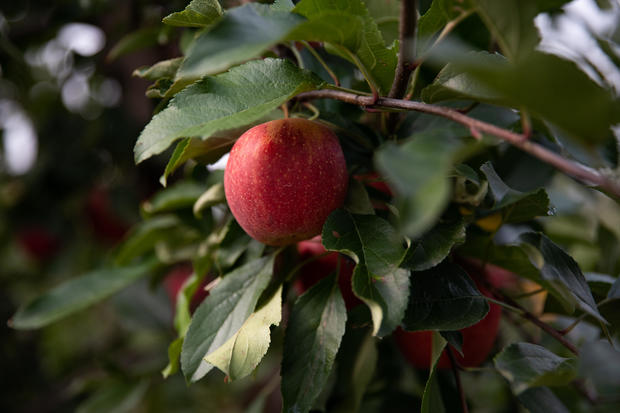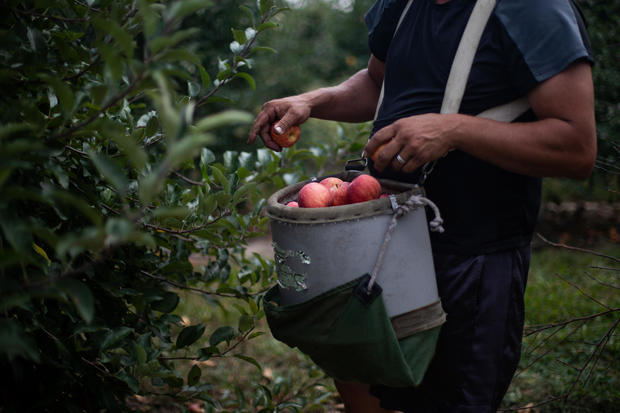Bobbing for apples: Inflation, labor shortages could put future of U.S. orchards in jeopardy
Apples are the center of many autumn traditions, like trips to the orchard or the farmers' market and making pies. But for the people who grow them, and those of us who love the fall fruit, this year's harvest comes with a unique set of challenges, including inflation and labor shortages.
Barron Shaw runs a family farm and apple orchard in York County, Pennsylvania, which got its start in 1841. He told CBS News that he's facing challenges unlike anything he's seen before.
"Inflation makes it very stressful," he said. "I mean the fuel prices, the energy costs, the electricity prices ... all of it is going up."
Inflation is squeezing industries of all sorts, but the apple industry is seeing a perfect storm down the supply chain that is hitting growers hard.
"You don't go into this business unless you've got a lot of faith; a lot of faith in God, a lot of faith in the family members around you," Shaw said. "You know, that's what keeps me going."
Unlike other items in the produce aisle that benefit from automated farming practices, apples are picked by hand and require intensive and specialized labor to harvest.
Shaw said his orchard just cannot find domestic workers for the intensely physical job. The industry relies heavily on international migrant workers using H-2A visas, whose wages are set by the federal government and vary state by state.
Shaw saw the wage for H-2A workers increase 10% from last year, up to $15.78 an hour. Across the U.S., H-2A wages have been going up 5-10% a year.
"We just have to pay what the government tells us," he said. "Completely out of our control."
The U.S. Apple Industry Association estimates total labor costs have spiked 30% this year. Apples, on average, also cost 6% more this year.
Most apple farmers said they aren't seeing more money in their pockets, though, despite the cost increase.
In Montgomery County, Maryland, public schools won't be able to serve a fresh seasonal apple for lunch for the first year ever. County officials said local apples cost three times as much this fall, and they'll have to stick with cheaper, prepackaged slices instead.
To weather the economic storm, farmers like Shaw are trying to entice people to buy from the orchard itself — cutting out the middlemen.
The orchards can offer you a lower price and get a bigger profit if you pick apples directly off the trees than off a grocery store shelf.
Shaw said for some orchards, that could be the tipping point.
"These businesses really are not sustainable unless they're profitable, and because there's no reason for the next generation to do this if they can't make a living, can't make a retirement doing it," he said. (double-check quote)


